Over the past two months, two Dalmatian pelicans tagged with GPS transmitters have died. At the end of January, the young female pelican Stella was found dead in the area of Lake Mandrа near Burgas in Bulgaria, and a few weeks later, in the area of Lake Golovița in Romania, located north of the city of Constanța, the body of the adult female pelican Plamena was discovered. In both cases, the cause of death was entanglement in fishing nets, likely followed by drowning of the birds.
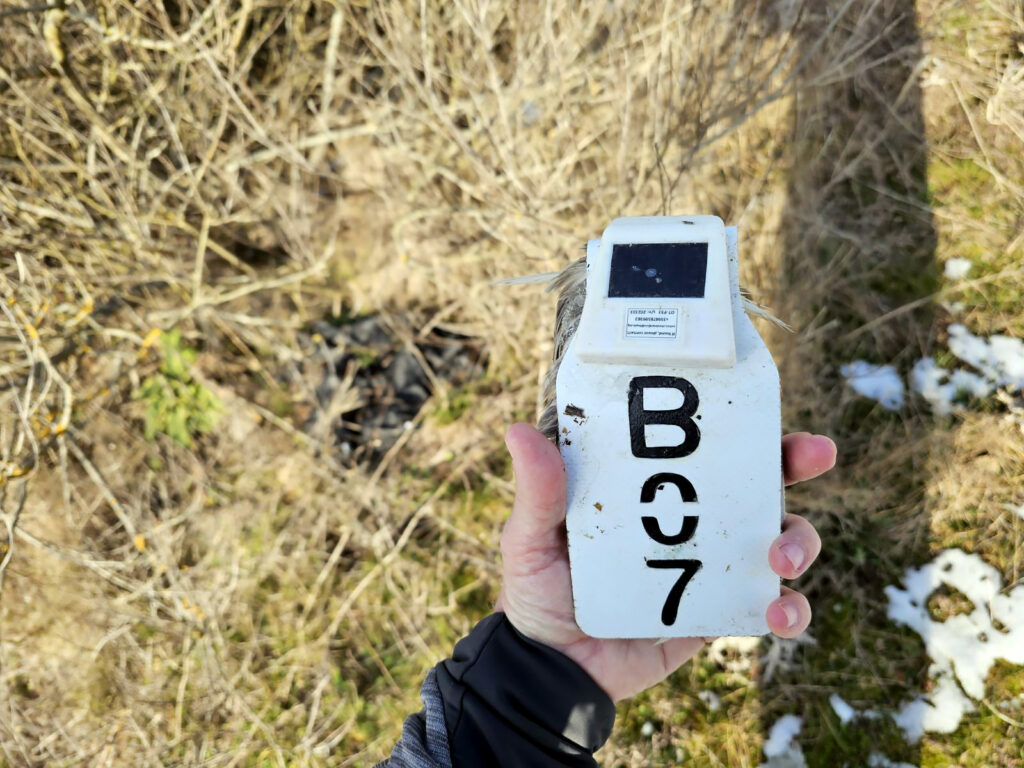
On January 20th, after spending the night on one of the floating platforms built by the Bulgarian Society for the Protection of Birds (BSPB) in the reserves of Lukoil Neftochim Burgas AD, Stella flew to Lake Mandrа, where she actively foraged in the eastern part of the reservoir. Shortly after, the bird took a rest on one of the peninsulas near the village of Dimchevo. Around 1:00 PM, the pelican took off and headed towards the interior of the reservoir between the villages of Konstantinovo and Prisad. Up to that point, the bird’s behavior was normal, but then the transmitter indicated that the pelican had been in the same location for over 4 hours, which is highly unusual behavior for the species and is impossible unless the bird is firmly attached to something in the water. The cause was entanglement in illegal fishing nets. Most likely, in its attempts to escape, the pelican drowned.
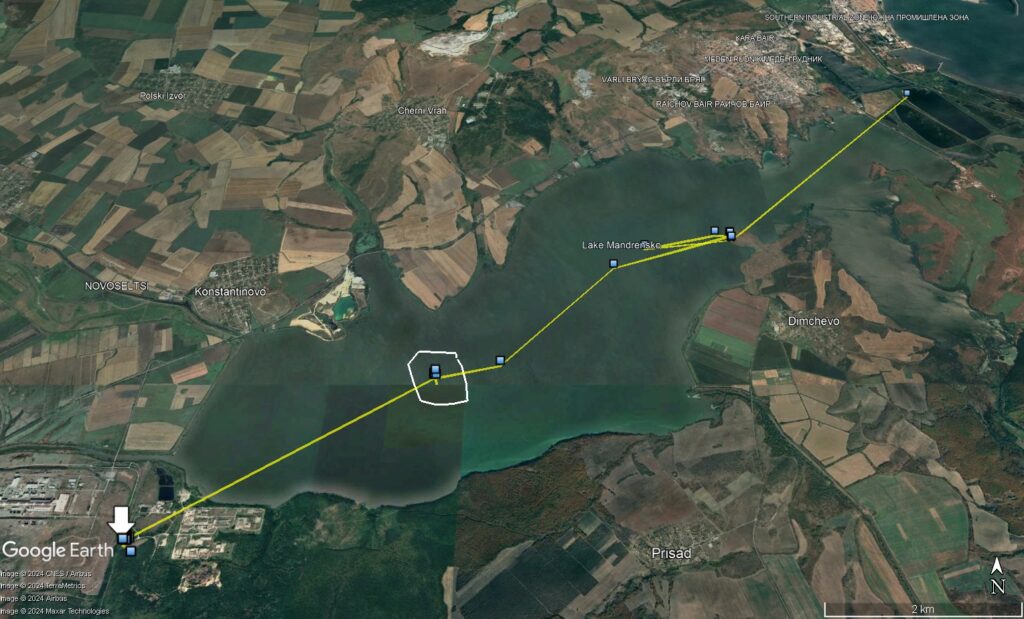
The next morning, the transmitter emitted a signal from an unusual location – a ravine near a bridge, south of Lake Mandrа. The BSPB team immediately went to the scene, and after several hours of searching, managed to find the device. It had been thrown precisely under the bridge, in dense thorny bushes, with fresh tissue and feathers remaining attached to it. The GPS transmitter had been forcibly removed from the pelican by a person. The BSPB team immediately notified the relevant state institutions – the Regional Prosecutor’s Office in Burgas, the Regional Directorate of the Ministry of Interior in Burgas, the Regional Inspectorate of Environment and Water in Burgas, as well as the Executive Agency for Fisheries and Aquaculture in Burgas. Several checks and interviews followed, but ultimately, the perpetrators of the crime were not identified.
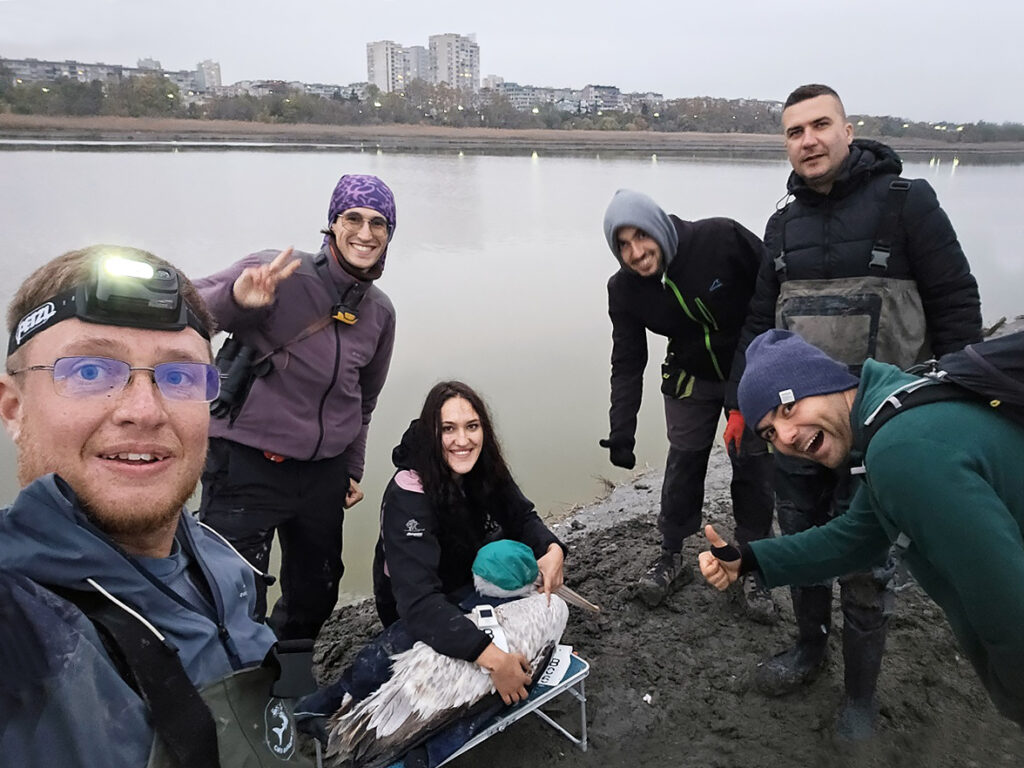
After getting entangled in an illegal fishing net, Stella was later found by poachers that evening, who managed to free the transmitter and attempted to hide it in an inaccessible area. This is a blatant violation against a protected species under the Biodiversity Act. The problem of illegal fishing nets in Lake Mandrа has been known for a long time. Hundreds of birds have likely died in recent years, entangled in such nets. Unfortunately, this was also Stella’s fate, who was tagged with a transmitter by the BSPB team on November 23, 2023, in the area of Atanasovsko Lake. Over these nearly two months, the bird covered a total of 1292 km, mostly feeding in Lake Mandrа and Lake Burgas, and resting on the dykes of Atanasovsko Lake or on the platforms located in the reserves of Lukoil Neftochim Burgas AD.
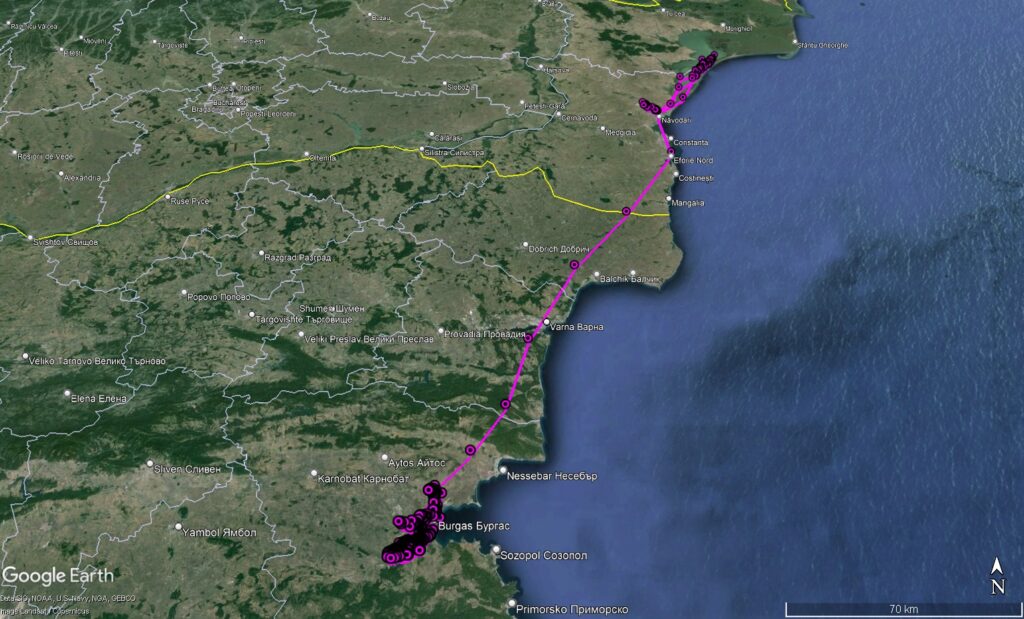
Bad news came a few weeks later from Romania. The same fate befell another Dalmatian pelican tagged with a transmitter – Plamena. During her foraging movements, the bird got entangled in a fishing net in Lake Golovița, and later that day, her body was thrown into a canal in the eastern part of the reservoir. The next day, after a signal provided by BSPB, the lifeless body of the pelican was found by colleagues working in the administration of the Danube Delta Biosphere Reserve. However, this time the transmitter had not been removed from the bird. The adult female pelican Plamena was tagged with a transmitter by the BSPB team on December 4, 2023. Over these two and a half months, the bird covered 2093 km. If Plamena had not died, she would most likely have nested in the colony of Dalmatian pelicans in Lake Sinoe in Romania and would have provided scientists with highly valuable data on the species.
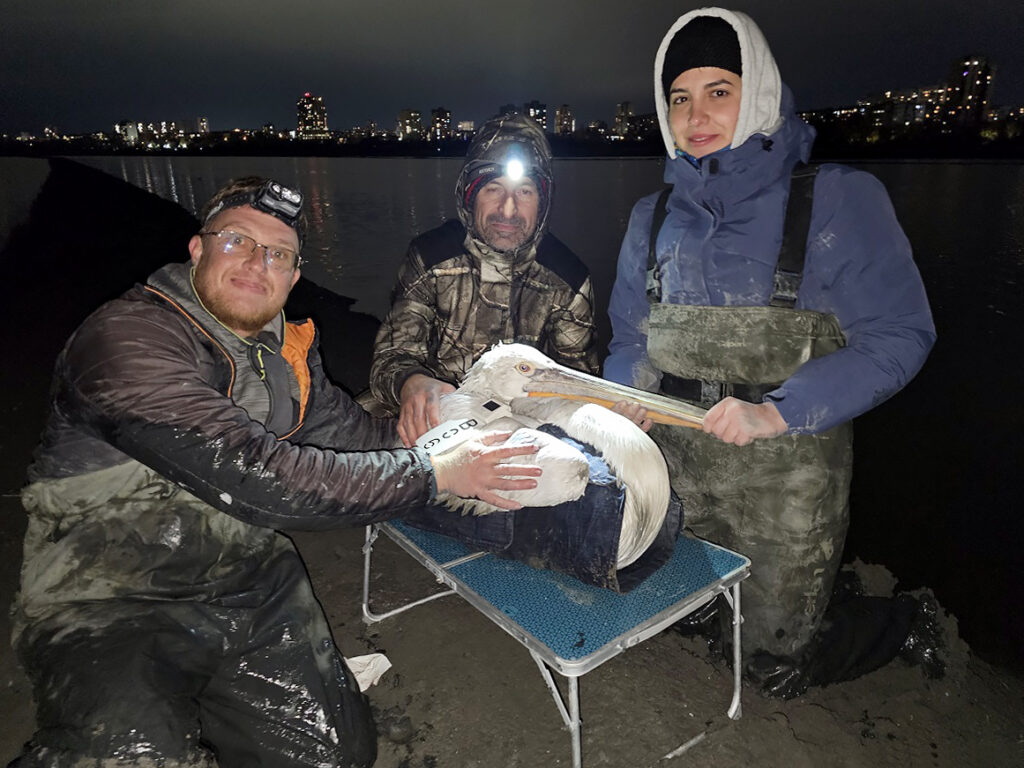
Unfortunately, with these two birds, the total number of deceased Dalmatian pelicans tagged with transmitters in Bulgaria has reached five. The data shows that entanglement in fishing nets is one of the main problems for the species. In this specific case, it concerns poaching raids. It is a well-known fact that in fishing nets, many other species of water birds – cormorants, divers, grebes, and others – often get entangled and die.
Nevertheless, the data obtained from the transmitters of Stella and Plamena are extremely valuable and have helped the scientists to identify risky areas where cases of entanglement in fishing nets can be expected.
The activities for protecting the Dalmatian pelican are carried out within the framework of the “Pelican Way of LIFE“ initiative (LIFE18/NAT/NL/000716), coordinated by Rewilding Europe and funded by the LIFE Programme of the European Union and Arcadia Foundation, and with the assistance in Bulgaria of the Whitley Fund for Nature.